The Role of Organic Makeup in Reducing Skin Sensitivity
flareAI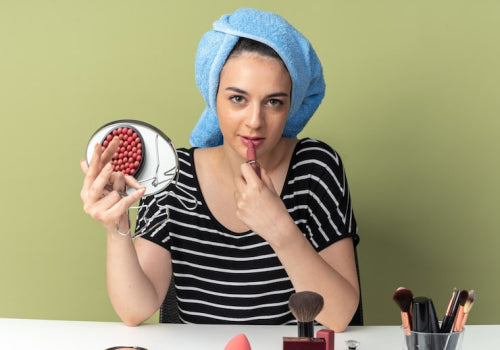
Quick Listen:
Imagine slipping on your favorite lipstick only to watch your lips swell like they've been stung by a swarm of invisible bees. For millions grappling with sensitive skin, makeup isn't just vanity it's a daily gamble. But what if the fix was as simple as swapping synthetic gloss for something grown from the earth? In our exploration of How Organic Makeup Can Help Reduce Skin Sensitivity: The Natural Approach to Radiant Skin, we uncover how a quiet revolution in clean beauty is turning the tide, one gentle formula at a time.
Many women feel trapped by makeup that hides flaws but risks irritation and hidden toxins. This daily choice weighs heavily, dimming confidence over time. Liht Organics invites you to embrace beauty differently. With up to 90% USDA-certified organic ingredients, our vegan, cruelty-free products deliver vibrant color and gentle care, letting you glow with confidence, knowing your skin is nurtured, not compromised. Shop Now!
Understanding Skin Sensitivity and Makeup's Hidden Toll
Walk into any drugstore or scroll through an online beauty retailer, and the shelves groan under the weight of promises: flawless coverage, eternal youth, zero effort. Yet for the one in three adults worldwide who report sensitive skin, these elixirs often deliver a cruel punchline redness, itching, breakouts that linger like unwelcome guests. Dermatologists point to a culprit hiding in plain sight: the cocktail of synthetic preservatives, fragrances, and parabens in conventional makeup that can trigger contact dermatitis, a rash that might take weeks to fade.
It's not just anecdotal. A 2023 study highlighted in a Cleveland Clinic report found that over 94% of nearly 1,700 products marketed as "natural," "clean," or suitable for sensitive skin still packed ingredients known to spark allergic reactions. Fragrances top the offender list think jasmine derivatives or clove oils that sound poetic but inflame like fire. "Even though a product is natural, you can still have difficulties with it," warns Dr. Sandra Hong, an allergist at the clinic. Oils and minerals might whisper "gentle," but allergies don't discriminate.
Enter organic makeup, a beacon for the beleaguered. Brands like Liht Organics are leading the charge with formulations boasting more than 80% clean, organic ingredients think plant-based oils and minerals so pure they're safe enough to eat. Made in the USA and Singapore, these products don't just sit on the skin; they nourish it, sidestepping the irritants that turn a quick touch-up into a week of regret. In bustling hubs like the UAE and Singapore, where humid climates amplify skin woes, consumers are catching on fast, ditching the old guard for options that align with their increasingly ingredient-savvy lives.
The Surge: Why Organic Beauty Is Having a Moment
Flip through Instagram feeds in Sydney or scroll TikTok in Mumbai, and you'll spot the shift: influencers in the US and Australia aren't just hawking highlighter; they're dissecting labels, championing "clean" over "cheap." This isn't fleeting hype it's a seismic pivot fueled by a collective wake-up call to the toxins lurking in our compacts. Across the globe, the organic cosmetics market is exploding, valued at USD 38.77 billion in 2024 and projected to hit USD 111.90 billion by 2033, clocking a compound annual growth rate of 12.52%.
What's driving this boom? Start with the science or lack thereof in traditional formulas. Synthetic chemicals like parabens and sulfates don't just linger; they disrupt hormones, inflame pores, and leave skin parched. In contrast, organic alternatives draw from sustainable farms, using herbs and extracts free of GMOs and pesticides. The result? Makeup that performs without the payback. Take Liht Organic's lineup: high-performance foundations that blend seamlessly yet hydrate like a serum, ideal for the sensitive souls in Saudi Arabia's arid expanses or Malaysia's tropical heat.
Regionally, the story sharpens. North America commands a hefty slice 37% of the global natural and organic cosmetics pie in 2024, worth USD 19.16 billion, with the U.S. alone eyeing USD 36 billion by 2034 at a 9.62% CAGR. Here, Gen Z and eco-warriors fuel the fire, demanding cruelty-free vibes. Europe trails as the fastest grower, but Asia-Pacific steals the show for sheer velocity projected at 7.94% CAGR through 2030, per Mordor Intelligence, as brands tap into India's Ayurvedic roots and Singapore's sleek minimalism. Even in the UAE, where luxury meets wellness, platforms like Faces.ae and Namshi.com are stocking more green-thumbed picks, mirroring a broader hunger for products that soothe rather than sting.
At its core, this trend whispers empowerment. Consumers aren't just buying lipstick; they're investing in armor against the daily assault of pollutants and stressors. Organic ingredients like those in Liht Organics over 80% derived from certified organic sources act as quiet guardians, packed with antioxidants that calm inflammation before it flares.
From Theory to Mirror: How Organic Makeup Delivers
Picture this: a harried professional in Dubai, post-meeting glow intact, no midday mask of irritation. Or a student in Sydney acing her exams without the distraction of flaky concealer. These aren't hypotheticals they're the ripple effects of real users who've traded talc-heavy powders for mineral-infused ones. On TikTok and Instagram, where Liht Organics thrives, videos abound of before-and-afters: skin that drinks in the product, emerging dewy, not defeated.
Stack conventional against organic, and the chasm yawns. Your average drugstore foundation? Laden with silicones and petroleum derivatives that clog and chafe. Liht's? A symphony of jojoba and shea, absorbing without residue, proven to reduce redness in user trials. Color cosmetics lead the pack, snagging 30.1% market share in 2023, as per Grand View Research, because who says bold lips can't be benevolent? The global natural cosmetics arena hit USD 31.84 billion that year, en route to USD 45.60 billion by 2030 at 5.3% CAGR, propelled by folks fleeing chemical-induced woes like acne and rashes.
Transparency seals the deal. Liht Organics lays it all bare no vague "fragrance" catch-alls, just sourced-from lists that invite scrutiny. Shoppers on The Green Collective in Singapore or Gold Apple in the UAE echo this: "Finally, makeup that doesn't fight back." It's not flawless coverage alone; it's the peace of mind that follows, especially for those whose skin flares at the slightest synthetic whisper.
Navigating the Humps: What Holds Back the Green Wave
Yet the path to pure isn't paved smooth. Hover over any beauty forum, and you'll hear the gripes: "Is this really better, or just pricier hype?" Trust lags, especially when "organic" slaps on everything from kale chips to kajal. A Cleveland Clinic dive reveals the rub natural doesn't equal safe; poison ivy is natural, after all, and can blister worse than any lab brew. Consumers in India and Australia, bombarded by greenwashing, crave proof beyond buzzwords.
Layer on confusion: What's the diff between "organic" and "natural"? The former's USDA-regulated 95% organic ingredients for the seal while the latter's a free-for-all. Many balk at decoding INCI lists, mistaking "clean" for certified. Liht Organics counters with bite-sized education on Instagram Reels: quick hits on why their 80%-plus organic blend skips the suspects, building bridges over the info chasm.
Trust? That's trickier. In markets like the UAE, where counterfeits lurk, skepticism simmers. But certifications and third-party tests hallmarks of Liht's ethos chip away at doubt. Still, as one TikTok commenter quipped, "Show me the skin, not the spin." Brands must lean into raw results, not rhetoric, to win the wary.
Horizons Ahead: Where Clean Beauty Blooms Next
Zoom out, and the vista dazzles. The organic personal care sector? It's ballooning to USD 257.94 billion by 2030 from USD 189.59 billion this year, at 6.35% clip, with Asia-Pacific sprinting ahead. Southeast Asia, from Malaysia's malls to India's bazaars, hungers for non-toxic glamour that withstands sweat and scrutiny. E-commerce catapults this Namshi and Faces.ae aren't just sellers; they're gateways, funneling global greens to local tastes.
Innovation beckons too. Fermented botanicals for microbiome-friendly mattes? Biodegradable tubes that vanish guilt-free? Liht Organics, with its dual USA-Singapore roots, is primed to pioneer, blending high-stakes performance with skin-soothing smarts. Opportunities abound for inclusivity shades for every tone, formulas for every sensitivity turning niche into norm.
The business boon? Undeniable. As consumers in the US and Saudi Arabia prioritize planet over palette, margins fatten on loyalty, not gimmicks. It's a virtuous loop: healthier skin begets bolder choices, fueling a market where sustainability sells itself.
A Gentler Glow: Embracing the Organic Edge
As the sun dips over Singapore's skyline or rises on Australia's shores, one truth holds: beauty shouldn't cost your comfort. Dermatologists like Dr. Hong urge simplicity "focus on products with very few ingredients" a mantra organic makeup embodies. For the sensitive-skinned, it's not indulgence; it's intelligence. Patch-test newcomers, shun scents, seek seals. Brands like Liht Organics aren't just painting faces; they're rewriting rules, proving radiant can rhyme with resilient.
Glance ahead, and the canvas expands. With markets cresting toward triple digits USD 103.23 billion by 2034 for natural organics alone this isn't a trend; it's transformation. In a world quick to inflame, choosing organic makeup whispers calm: your skin, heard. Your glow, earned. And in that quiet power, the real makeup magic unfolds.
Frequently Asked Questions
How does organic makeup help reduce skin sensitivity compared to conventional makeup?
Organic makeup contains over 80% clean, plant-based ingredients that are free from synthetic preservatives, parabens, and harsh fragrances that commonly trigger contact dermatitis and allergic reactions. Unlike conventional makeup laden with petroleum derivatives and silicones that can clog pores and cause irritation, organic formulations use nourishing ingredients like jojoba and shea that actually hydrate and calm the skin while providing coverage.
What ingredients should sensitive skin users avoid in conventional makeup products?
People with sensitive skin should avoid synthetic fragrances (including jasmine derivatives and clove oils), parabens, sulfates, and petroleum-based ingredients that are commonly found in drugstore makeup. A 2023 Cleveland Clinic study found that over 94% of products marketed as "natural" or suitable for sensitive skin still contained known allergens. Instead, look for certified organic products with minimal ingredients and third-party testing to ensure safety.
Is organic makeup as effective as regular makeup for coverage and longevity?
Yes, high-quality organic makeup can deliver excellent performance while being gentler on skin. Modern organic formulations blend seamlessly and provide hydrating benefits, making them ideal for various climates from humid tropical areas to arid regions. Organic makeup has proven to reduce redness in user trials while offering the same bold colors and coverage as conventional products, with the added benefit of nourishing rather than irritating the skin throughout the day.
Disclaimer: The above helpful resources content contains personal opinions and experiences. The information provided is for general knowledge and does not constitute professional advice.
You may also be interested in: Organic Pore Perfection Primer with Rosehip & Aloe | Liht – Liht
Many women feel trapped by makeup that hides flaws but risks irritation and hidden toxins. This daily choice weighs heavily, dimming confidence over time. Liht Organics invites you to embrace beauty differently. With up to 90% USDA-certified organic ingredients, our vegan, cruelty-free products deliver vibrant color and gentle care, letting you glow with confidence, knowing your skin is nurtured, not compromised. Shop Now!
Powered by flareAI.co
Share
You May Also Like
-

Discovering Self-Love Through Clean Beauty: A Guide to Nurturing Your Inner and Outer Self
In the journey of self-love, every action, thought, and choice we make towards ourselves can be a powerful affirmatio...
-

The Science Behind Organic Makeup and Pregnancy: A Gentle Choice for Moms-to-Be
wp:paragraph Pregnancy is a wonderful and exciting journey that comes with added responsibilities of ensuring the ...
-
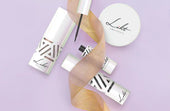
Liht Organics Black Friday: Enhance Your Beauty Routine with Vegan, Organic, and Natural Essentials!
As the holiday season approaches, there’s a sparkle in the air, and we at Liht Organics are thrilled to add a touch o...
-

Organic Makeup That Heals As It Conceals
Liht Organics Empowers Women With Only The Best For Their Beauty NeedsLiht Organics combines the best of both worlds:...
-
![[FEATURE] Liht Organics to debut at TFWA Asia Pacific show](//lihtorganics.com/cdn/shop/articles/1_1.png?v=1759328400&width=170)
[FEATURE] Liht Organics to debut at TFWA Asia Pacific show
‘Organic makeup that’s safe enough to eat’ — Liht Organics to debut at TFWA Asia Pacific show by Hannah Tan | 24 Apri...
-
![[FEATURE] The Singapore-based organic makeup brand is a first-time exhibitor at this year’s TFWA Asia Pacific Exhibition in Singapore in May 2025](//lihtorganics.com/cdn/shop/articles/2_1.png?v=1759328386&width=170)
[FEATURE] The Singapore-based organic makeup brand is a first-time exhibitor at this year’s TFWA Asia Pacific Exhibition in Singapore in May 2025
TFWA Asia Pacific preview: Liht Organics targets expansion in travel retail By DFNI Staff Writer The Singapore-bas...
-
![[FEATURE] Travel Retail Awards 2025 finalists - Best Make-up Product Color-Intense Liquid Lipstick – Liht Organics](//lihtorganics.com/cdn/shop/articles/4_e2f54f0f-fcd1-46e7-9990-fc9d29e35131.png?v=1759328382&width=170)
[FEATURE] Travel Retail Awards 2025 finalists - Best Make-up Product Color-Intense Liquid Lipstick – Liht Organics
Revealed: Travel Retail Awards 2025 finalists By Trbusiness Editor | Wednesday, 23 July 2025 15:21 TRBusiness is th...
-
![[FEATURE] Liht Organics targets expansion in travel retail](//lihtorganics.com/cdn/shop/articles/3_1.png?v=1759328346&width=170)
[FEATURE] Liht Organics targets expansion in travel retail
Organic makeup that’s safe enough to eat: Liht Organics targets expansion in travel retail By Laura Shirk Liht Organ...
-

[FEATURE] Gulf News: TikTok’s strawberry girl makeup trend: How to achieve that rosy glow inspired by Hailey Bieber
Berry, berry, strawberry, love strawberry, like BTS’s J-Hope, the band’s strawberry enthusiast once said. If only we ...
-

[FEATURE] Gulf Business Magazine : Liht-ing it up
Our founder, Nerissa Low was interviewed by Gulf Business, where she discussed her experience launching Liht, an orga...
-

[FEATURE] Daily Vanity: 11 local beauty brands owned by women – you’d be surprised how many of them started in their kitchens!
When we give a shout-out to homegrown beauty businesses, we aren’t just doing it for the sake of supporting local. Th...
-

[FEATURE] Entrepreneur ME : UAE-Based Liht Organics' Nerissa Low On Crafting An Organic Makeup Brand For The Skin-Conscious Consumer
As is the case with the origin stories of so many startups out there, Liht Organics came into being after its founder...
-
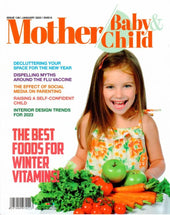
Mother, Baby & Child Editor’s Pick: Liht Organics Lights the Way
Excited to be the Mother, Baby & Child’s ‘Editors pick’ for their choice of Beauty brand.The article outlined the...
-
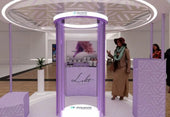
[FEATURE] EmiratesWoman - 8 Fabulous things to do in Dubai this weekend
by SARAH JOSEPHJANUARY 20, 2023Try the UAE’s first virtual reality makeup podium The popular VR-backed makeup exper...
-

Nerissa Low of Liht Organics On The Self-Care Routines & Practices Of Busy Entrepreneurs and Business Leaders
By Maria Angelova, CEO of Rebellious Intl.Date: 4 January, 2023Nerissa Low of Liht Organics On The Self-Care Routines...
-

Liht Organics: Meet the beauty brand that has caught the eye of the Royal Family of Bahrain
By Crystal Lee Digital Editor28 May 2021The world of clean beauty is, ironically, rather murky.That’s because the ter...
-

The latest luxury makeup and skincare drops, including serums, concealers, moisturisers and more
Allisa Noraini21 May, 2021It’s fine to splurge in the name of beauty. This new range of makeup and skincare drops are...
-

These SG Beauty Bosses Are Conquering The World Despite The Pandemic
First Singapore, then the US, China, Germany, Dubai, UK, South Korea, Malaysia, Hong Kong, Thailand, Australia… By...
-

Nerissa Low, Founder at Liht Organics
Written by Callum LaingPosted on December 26, 2020 10 min readNerissa Created Organic Makeup That Actually Improve...
-

Liht Organics – Makeup That Makes You
At Liht Organics, our mission is simple – to provide women (and men) with a safe experience when it comes to beauty s...
-

Why Should We Use Organic Makeup?
We cannot deny that cosmetics is one of our beauty essential item – it enhances our looks and conceals our flaws. Man...
-

Organic makeup and why your skin will love it: Liht Organics founder
By Jolene,July 27, 2020 |7 mins readOrganic make up in Singapore is a trend that is fast-catching on here as we becom...
-

[FEATURE] DC EDIT – Makeup & Confidence: Talking Self-love With Liht Organics’ Founder Nerissa Low
Makeup and confidence — the long, drawn-out fight that many of us have grappled with personally. I’m sure I’m not the...
-

[FEATURE] THE FEMALE CULTURE – I TRIED LIHT ORGANICS AND THIS IS HOW IT WENT
I’m a huge fan of makeup and I love testing out new products so I was pretty excited to get my hands on Liht Organics...
-

[FEATURE] SINGAPORE MOTHERHOOD – The Best Organic and Natural Skincare and Makeup for Pregnant and Breastfeeding Mums in Singapore
Pregnancy is a hormone-volatile period for women. One place where this makes itself seen and felt is on the skin. Som...
-

[FEATURE] AFTER CLINIC HOURS – 21 Back to Beauty Deals in Singapore (2020)
With spas and salons shuttered island wide for two months, I never thought I’d be this desperate for a good old’ Swed...
-

[FEATURE] KUL AL USRA MAGAZINE JUNE 2020
Choosing Pinks & Oranges this summer!Featured: Moisture Burst Lip Glaze in Pink Cupcake.
-
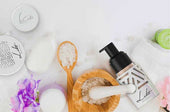
[FEATURE] Award-winning Organic Makeup Brand Liht Organics Gives Back to the Community & Environment During COVID-19
Singapore’s First Organic Makeup Brand with 100% Natural Makeup That Is Safe Enough to Eat Liht Organics promises org...
-

[FEATURE] COSMETICS DESIGN ASIA – COVID-19 ‘WAKE-UP CALL’: SINGAPORE’S LIHT ORGANICS SEES GLOBAL POTENTIAL AMID CLEAN BEAUTY CLAMOUR
Original article at: https://www.cosmeticsdesign-asia.com/Article/2020/06/26/Singapore-s-Liht-Organics-sees-globa...
-

[FEATURE] THE LIFESTYLE COLLECTIVE – BEAUTY SHOULD NEVER BE CRUEL
Date: June 24, 2020Author: Kristen Chen Liht (pronounced as light) Organics is a Singaporean organic makeup brand t...
-

[FEATURE] NÜYOU – 7 ONLINE PLATFORMS TO SHOP FOR CLEAN BEAUTY PRODUCTS
纯净美容(Clean Beauty)的美肤概念,再近几年来越来越受欢迎。随着消费者“爱自己”的美容意识逐步提升,对于用在脸上的所有物品、成分更为关注和讲究。以广义来讲,纯净美容主张使用“干净”成分和无毒配方,让肌肤的可能性损伤减到最小...
-

[FEATURE] COSMOPOLITAN MIDDLE EAST – 3 BENEFITS OF SWITCHING TO ORGANIC BEAUTY PRODUCTS THIS RAMADAN
By Cosmo – May 08, 2020Nerissa Low, founder of Liht Organics, shares the ultimate benefits of going organic this mont...
-

Nerissa Low of Liht Organics: “Seeing Light at the End of the Tunnel; 5 Reasons To Be Hopeful During this Corona Crisis”
Ely Weinschneider, Psy.D.May 8 · 9 min read …It shows us that everyone- whether we are rich or poor, regardless...
-

[FEATURE] AL MARA MAGAZINE APRIL 2020
-

[FEATURE] RetailME April 2020 – Liht Organics Stays Firm On Strengthening GCC Presence
-

[FEATURE] EMARAT AL YOUM NEWSPAPER – 27 MARCH 2020
English Translation:In spring and summer days, women love to have very light makeup in terms of color and texture, ...
-

[ARTICLE] WKND Magazine March 2020 – Know Your Organic Makeup
-

[FEATURE] AVIAMOST DUBAI – March/April 2020
English Translation:Lipstick with organic flowers. Thanks to the rich complex of natural ingredients, the lipstick...
-

[FEATURE] RUSSIAN EMIRATES (MAR/APR ISSUE)
Russian Emirates is a luxury lifestyle and fashion magazine covering information about the UAE, fashion, beauty, j...
-

[FEATURE] – KUL AL USRA MAGAZINE MARCH 2020
GET THE LOOK!
-

[FEATURE] IMAGES Retail ME – Liht Organics Announces GCC-Wide Expansion
Rupkatha Bhowmick Mar 10, 2020 The plan is to reach 75 Liht Organics retail touchpoints by June-July 2020 and touch...
-

[FEATURE] BABY & CHILD SPRING 2020 – NATURAL BEAUTIES
-

[FEATURE] AWQAT DUBAI – Liht Organics: The First Premium Organic Makeup Brand
ENGLISH TRANSLATION:Liht Organics – The First Premium Organic Makeup Brand Liht Organics, a premium organic beauty ...
-

[FEATURE] FRIDAY MAGAZINE – THE RETRO EYELINER LOOK
-

[FEATURE] MOTHER BABY & CHILD – VANITY ESSENTIALS – THE BEAUTY EDIT
-

[FEATURE] Masala! Magazine February/March 2020 Issue – Beauty Debut: Liht Organics
-

[Feature] – TimeOut Singapore – The Best Local Beauty and Skincare Brands In Singapore
For full article, click here.
-

[FEATURE] KUL AL USRA MAGAZINE – LIHT UP YOUR WORLD WITH LIHT ORGANICS
[ENGLISH TRANSLATION]Liht Up Your World With Liht OrganicsThe First Premium Organic Makeup Brand To Debut In The Mi...
-

[FEATURE] SINGAPORE TATLER – 9 Local Beauty Brands You Should Know Of
-

[FEATURE] nüyou August 2019 Issue – 15 Faces To Watch
-

[FEATURE] HONEYCOMBERS – Local Beauty Gurus: Singapore Beauty Brands You Need To Know About
-

[FEATURE] The Wellness Insider – Seeing The Liht With Founder Nerissa Low
-

[FEATURE] 联合早报 (LianHeZaoBao) – Women Entrepreneur Awards 2019 Coverage
-

[FEATURE] THE STRAITS TIMES Life – Clean beauty with a Singapore heart
-

Romantic Organic Makeup Looks for Valentine's Day: Tips, Tricks, and Product Picks
Valentine's Day is the perfect occasion to embrace the beauty of organic makeup. At Liht Organics, we believe in the ...
-
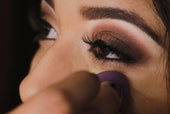
Enhance Your Eyes: A Guide to Eyeliner for Every Eye Shape with Liht Organics
Welcome to the Liht Organics blog, where we believe in celebrating the natural beauty of every eye shape. Today, we'r...
-
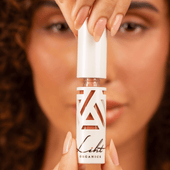
How to do makeup with only lipstick?
At Liht Organics, we believe in the power of clean beauty and the artistry of makeup. Makeup is more than just enhanc...
-

How to Clean Your Makeup Brushes in 6 Simple Steps
Cleaning your makeup brushes may seem like a tedious task, but it's an essential part of your beauty routine. Not onl...
-

Makeup Tips to Help You Look Your Most Flattering on Virtual Meetings!
After more than 2 years of work-from-home arrangement, and possibly hundreds of zoom calls and Google meet virtual me...
-
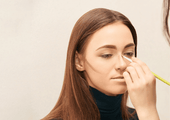
Learn How to Contour with This Simple Guide for Beginners
Want to take your makeup to the next level? Try contouring to achieve a more defined or sculpted look à la the Kardas...
-
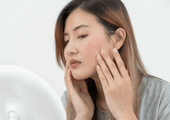
Essential and Easy Makeup Tips for Sensitive Skin
Living with sensitive skin conditions like eczema, psoriasis, and more is already not an easy feat. Throw in makeup t...
-

Raising Your Vibration: A Liht Organics Guide for Empowerment This International Women's Day
wp:paragraph As International Women's Day (IWD) approaches, it serves as a powerful reminder of the journey towards s...
-

The Beauty of Going Bare: Why Sleeping with Makeup is a No-No
Have you ever had one of those nights where you're too tired to clean off your makeup? You might believe, "Skipping...
-

Breast Cancer Awareness: Empower Your Beauty with Liht Organics Makeup
During October, we observe Breast Cancer Awareness Month as a way to unite and bring attention to breast cancer whil...
-

The Hidden Dangers of Carmine in Makeup Colorants: Embracing Healthier and Vegan Options
Makeup has become an integral part of our daily routines, allowing us to express our unique beauty. However, as we pr...
-

How can I ensure that my makeup products are organic and won't harm my skin?
When it comes to makeup, it’s important to be mindful of what you’re putting on your skin. With so many products on t...
-
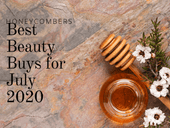
[FEATURE] HONEYCOMBERS – BEST BEAUTY BUYS IN JULY
by Nicole NithiyahWhat’s hot in our beauty hit list: Honest thoughts and top beauty stories we’re swooning over. As w...
-

Liht Organics Introduces Exclusive Gift Sets: Enhance Your Beauty This Festive Season!
As the holiday season approaches and the year draws to a close, Liht Organics is thrilled to present two enchanting g...
-

Get Spooktacular with the Best Halloween Makeup Ideas using Liht Organics' All-Natural, Vegan, and Cruelty-Free Cosmetics!
With Halloween just around the corner, it’s time to let your creativity shine and transform yourself into a spooky,...
-

Celebrating World Animal Day with Liht Organics: Embracing Natural Cruelty-Free Makeup
wp:paragraph As we observe World Animal Day, the team at Liht Organics takes great pride in honoring our pledge to...
-

Reasons Why You Should Choose Cruelty-Free Cosmetics Instead!
With increasing exposés unveiling the ugly truth behind animal testing that goes on in the beauty industry, it is lit...
-

Celebrate Singles Day with Makeup That Empowers – 22% Off at LIHT Organics!
This Singles Day, treat yourself to beauty that goes beyond skin-deep. At LIHT Organics, we believe makeup is about s...
-

Preparing for the Cozy Beauty of Autumn: A Preview of Your Fall Look
As we bid farewell to the warm, sun-kissed days of summer, it’s never too early to start dreaming about the enchantin...

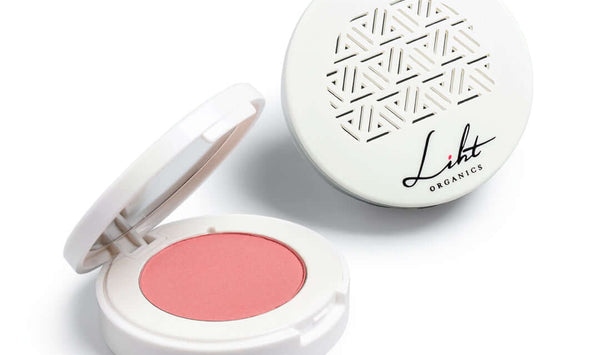
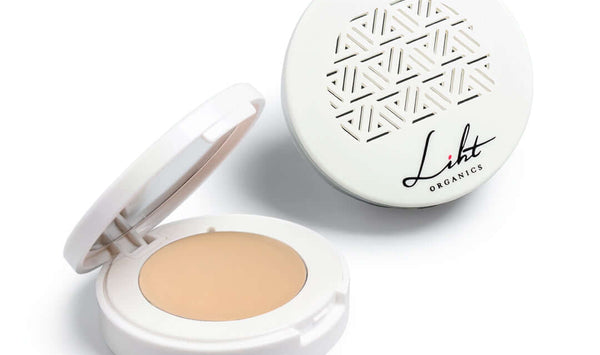
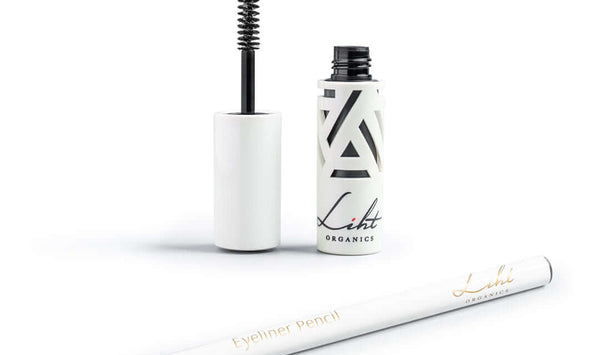
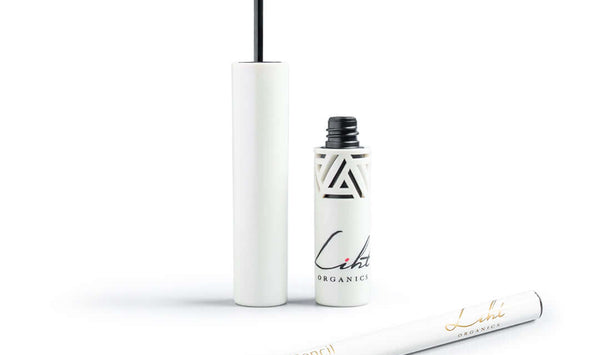
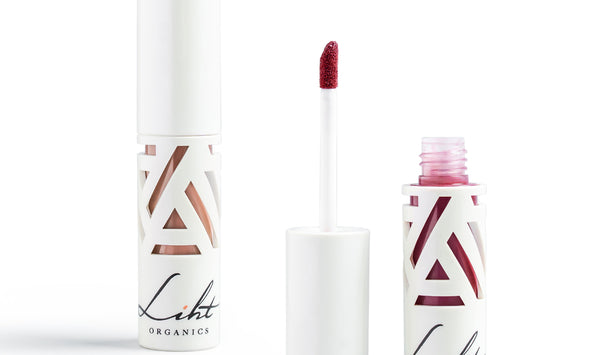
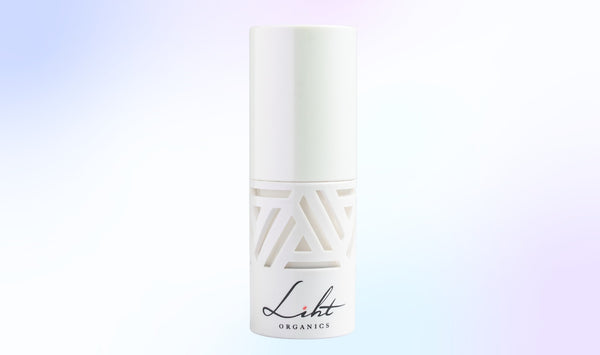

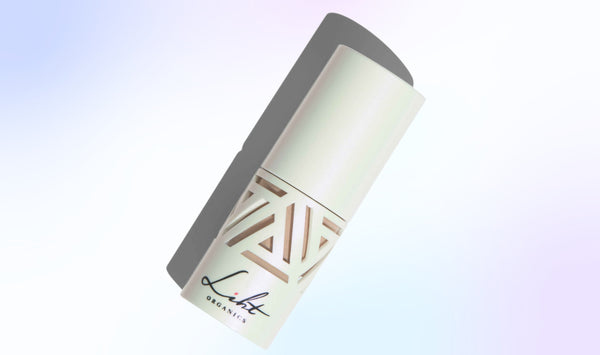
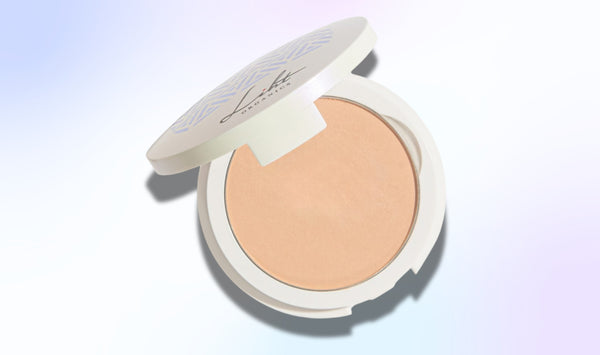
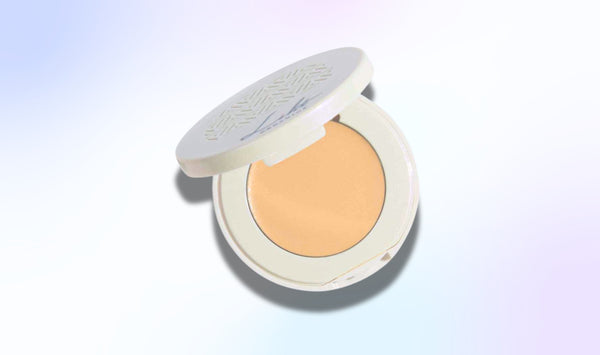
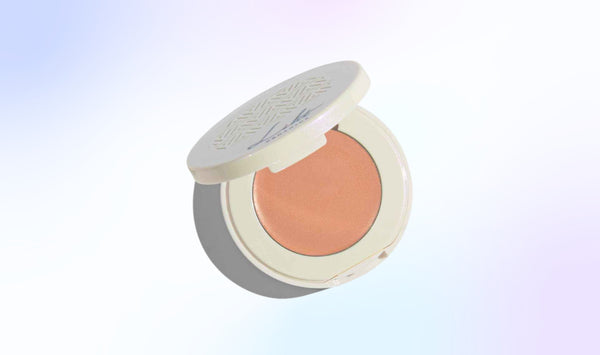
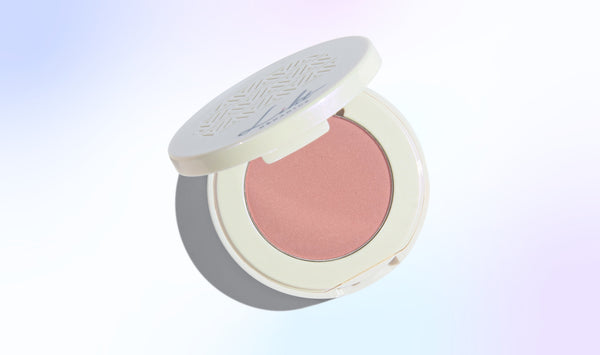
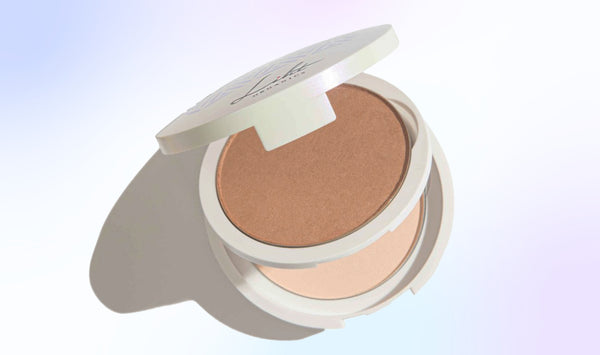
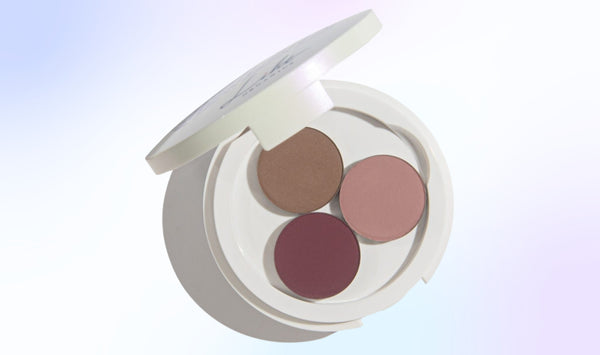
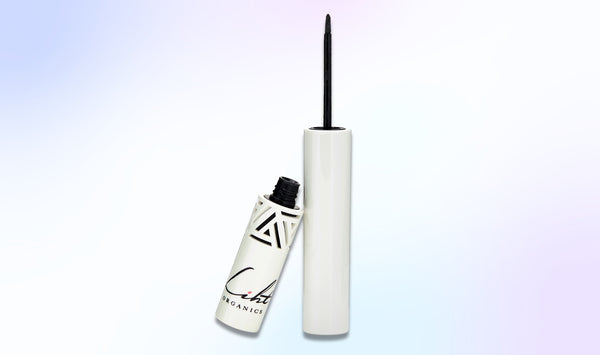
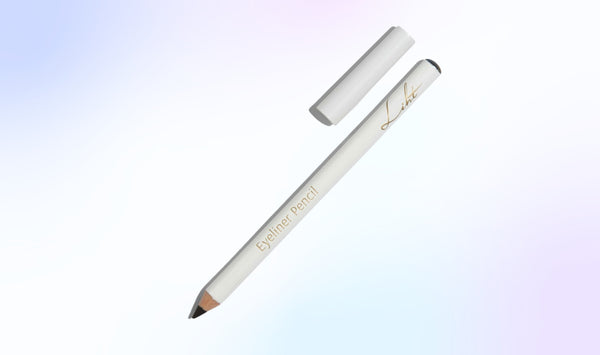
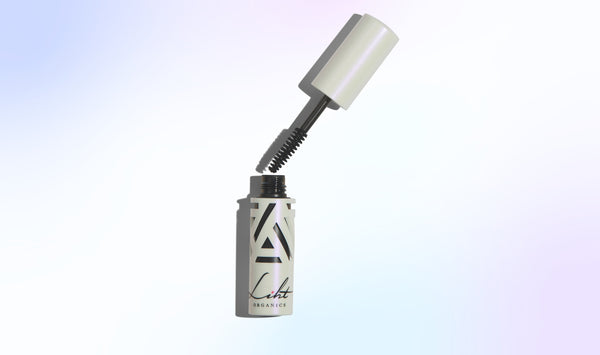
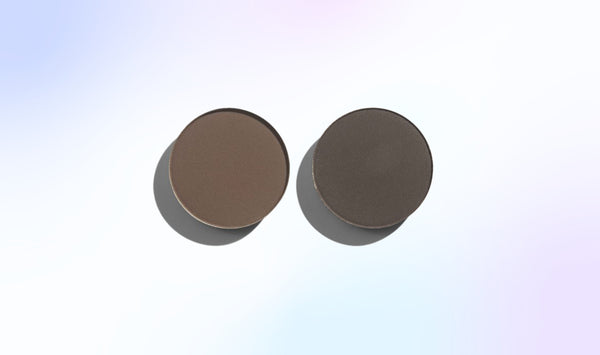
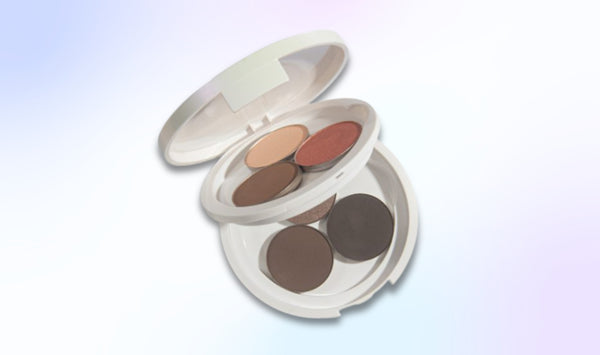
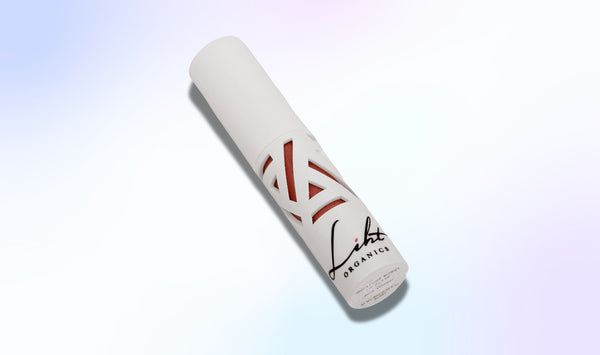
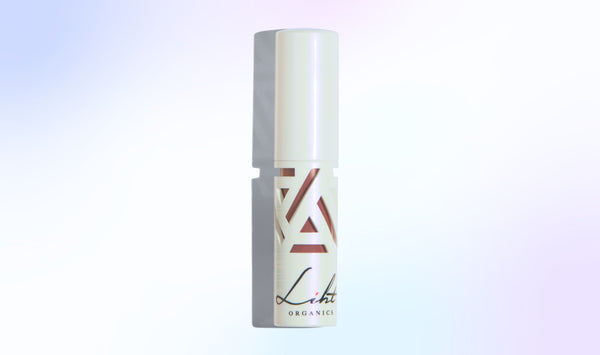
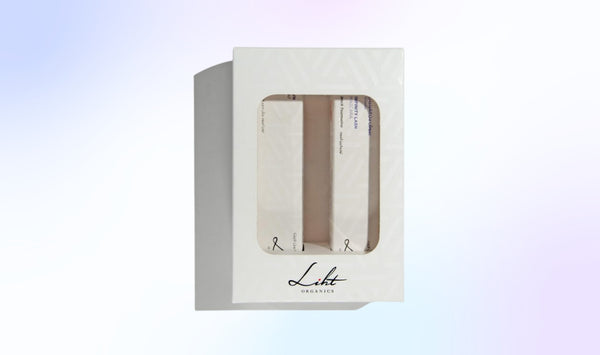
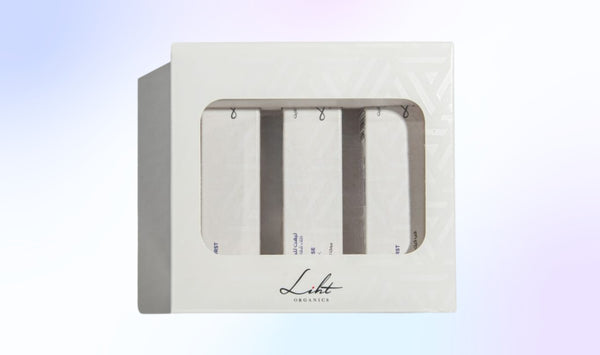


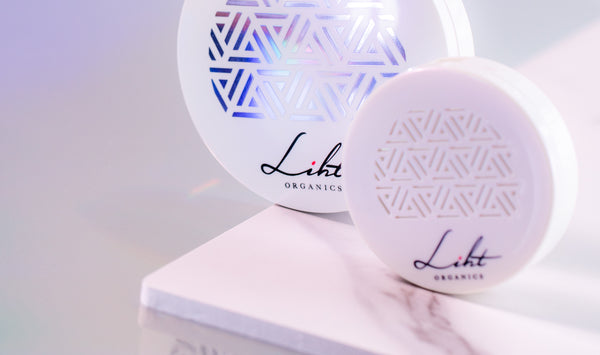
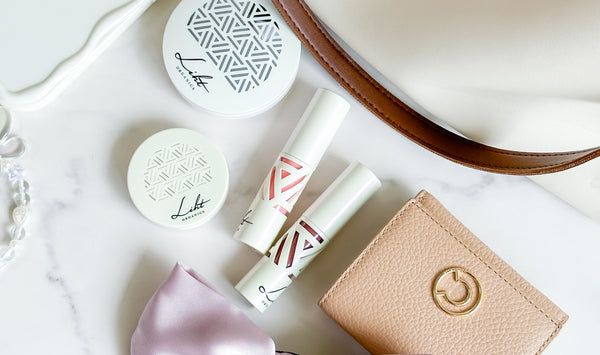
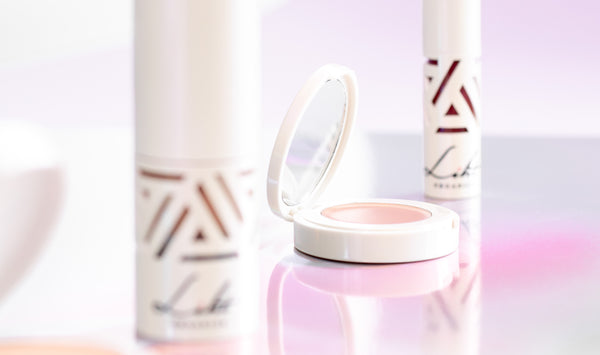




![[FEATURE] Liht Organics to debut at TFWA Asia Pacific show](http://lihtorganics.com/cdn/shop/articles/1_1.png?v=1759328400&width=170)
![[FEATURE] The Singapore-based organic makeup brand is a first-time exhibitor at this year’s TFWA Asia Pacific Exhibition in Singapore in May 2025](http://lihtorganics.com/cdn/shop/articles/2_1.png?v=1759328386&width=170)
![[FEATURE] Travel Retail Awards 2025 finalists - Best Make-up Product Color-Intense Liquid Lipstick – Liht Organics](http://lihtorganics.com/cdn/shop/articles/4_e2f54f0f-fcd1-46e7-9990-fc9d29e35131.png?v=1759328382&width=170)
![[FEATURE] Liht Organics targets expansion in travel retail](http://lihtorganics.com/cdn/shop/articles/3_1.png?v=1759328346&width=170)
































































